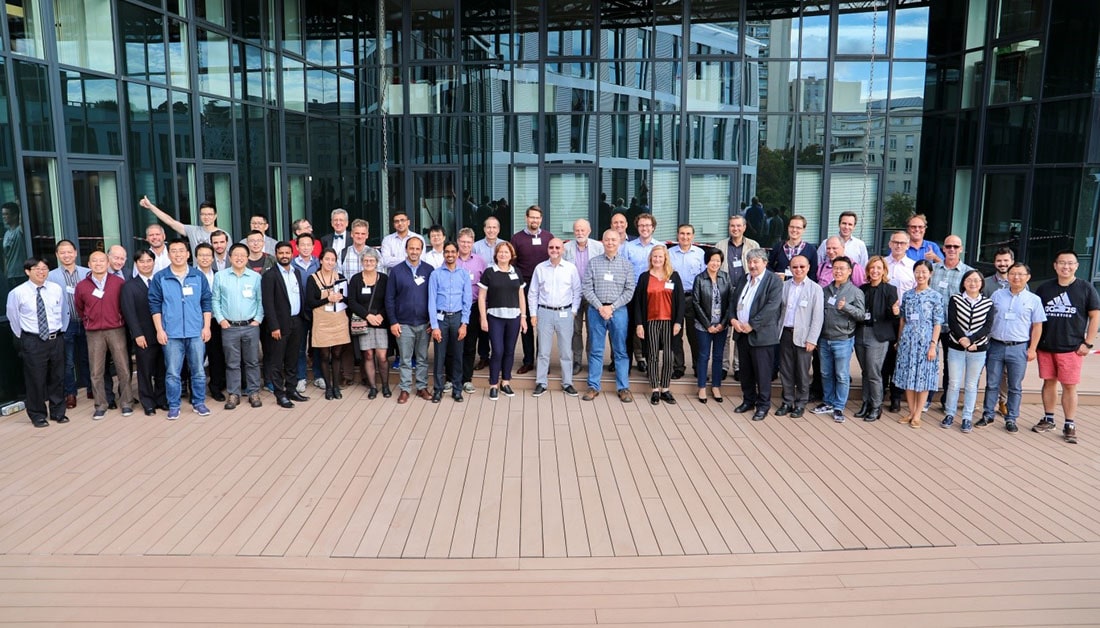Flying start for NFV Release 4
For its 27th plenary meeting, the ETSI Industry Specific Group (ISG) on Network Functions Virtualisation (NFV) met at Orange Gardens, the recent Research and Innovation Campus of Orange, located in Châtillon, a small town in the outskirts of Paris, France. The meeting is to be remembered as the one where the contents of NFV Release 4 started to materialize with the approval of 8 work items.
The opening session started with an uplifting presentation from Diego Lopez, the chair of the ISG, highlighting the challenges to be addressed by standardization bodies to cope with the transformation of the telco industry ecosystem and processes. I liked the comment he made to invite delegates to resist the temptation of creating new terms and acronyms (e.g. Cloud-Native Network Functions / CNF vs. Virtualised Network Functions / VNF) to catch-up with buzzwords. After all, whether the software of a VNF is designed according to cloud-native patterns or not, the VNF remains a VNF!
After the opening plenary, the bulk of the work was performed during three intense days where delegates divided in six working groups to process hundreds of contributions.
Container, the flagship topic of NFV Release 4
The meeting approved the creation of three new work items related to the use of containers for supporting the deployment of cloud-native VNFs:
- A specification of service interfaces for OS container management and orchestration
- A specification of requirements for the management and orchestration of container cluster nodes
- A report on network connectivity for container-based VNFs
Furthermore, to complete the picture, a work item on container security was proposed at the closing session, and submitted for remote approval.
The discussions around all these work items were lively, demonstrating, if proof were needed, how important this topic for our industry is.
Another major result of this plenary meeting is the approval of the widely anticipated report on architecture enhancements for cloud-native and Platform as a Service (PaaS) (ETSI GR NFV-IFA 029). It will provide a solid basis for the aforementioned Release 4 work items on container-based VNFs.
Acknowledging the importance of industry collaboration, the ISG also appointed Mohamed El Gamal (NetNumber) as liaison officer to the Cloud Native Computing Foundation (CNCF).
Forward-looking studies in Release 4
Besides those related to the container technology, the ISG approved the creation of 6 additional work items:
- A study on the evolution of the NFV architectural framework towards a Service-Based Architecture (SBA) design
- A study on NFV support for 5G, aimed at determining how to further improve NFV capabilities to facilitate the implementation and deployment of 5G networks
- A study on the robustness of NFV Management and Orchestration (NFV-MANO) functions
- A study aimed at identifying generic common OAM functions for VNFs as well as studying the solutions to implement them
- A study on enabling autonomous management in NFV-MANO
- A study on NFV network connectivity integration and operationalization
Maintaining and evolving previous NFV Releases
Another major result of this plenary meeting is the approval of the specification of Restful APIs for managing NFV management and orchestration functions (ETSI GS NFV-SOL 009), major feature of the Release 3 standardization effort. The specification of Restful APIs for inter-NFVO communication (ETSI GS NFV-SOL 011), another Release 3 feature, was stabilized during the week and will enter a final review phase.
Working on Release 3 and Release 4 did not prevent the ISG to consolidate and maintain its set of Release 2 Restful APIs and Data Model specifications. Representations in the OpenAPI language of version 2.6.1 of all core Management and Orchestration APIs have been approved and made publically available. The ISG has been working in parallel on the development of version 2.7.1 of these specifications, which is close to completion.
During the week, the ISG was also glad to learn that the ETSI Board had accepted their requests for recruiting external experts to setup two Specialist Task Forces (STFs) that will help with the development and maintenance of OpenAPI specifications and associated conformance tests during the year 2020.
Finally, let us note that the report of the NFV Remote Attestation Architecture (ETSI GR NFV-SEC 018) was completed this week and submitted to approval by correspondence. A new version of the NFV Proof-Of-Concept (PoC) framework document (GS NFV 005) was submitted to approval by correspondence as well.
What comes next?
The next plenary meeting will take place from 2-6 December in Fukuoka, Japan, hosted by NTT DOCOMO. Before that, two of the ISG working groups will meet in Leganes, Spain, to make further progress. Newcomers interested in contributing to the new work items are more than welcome to join us!


